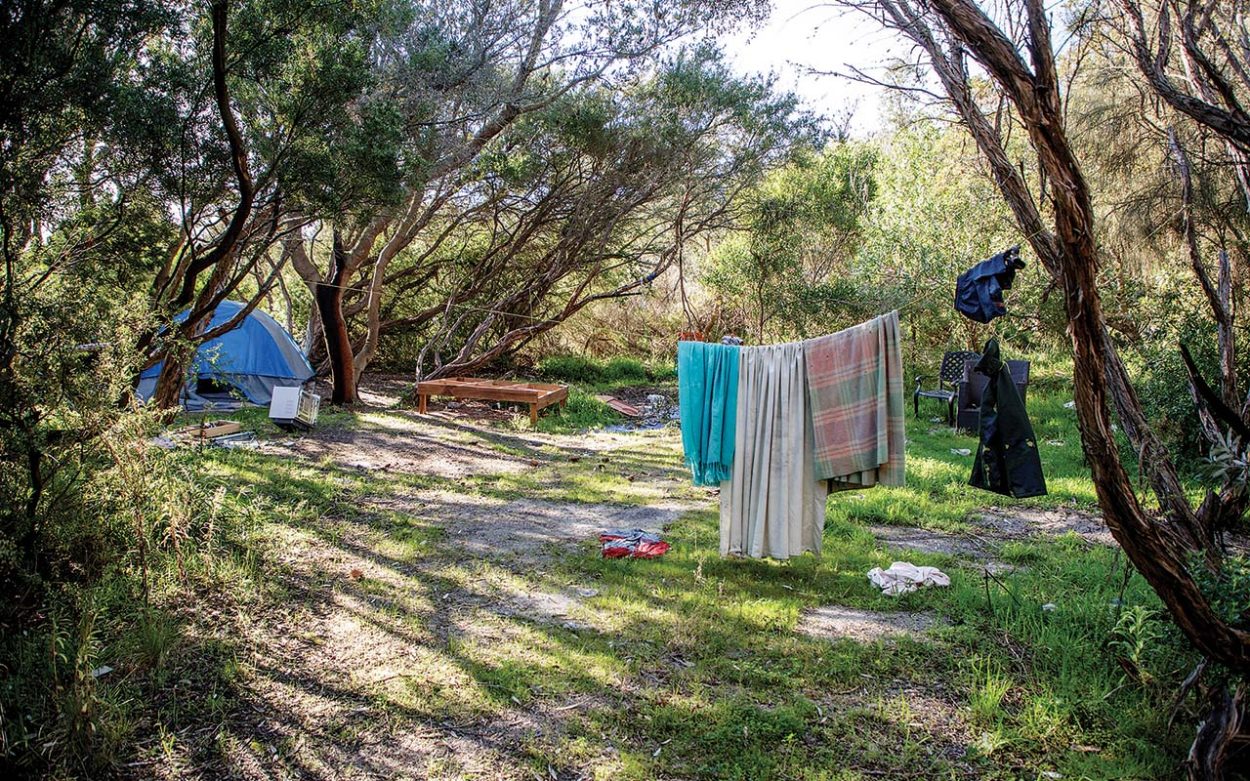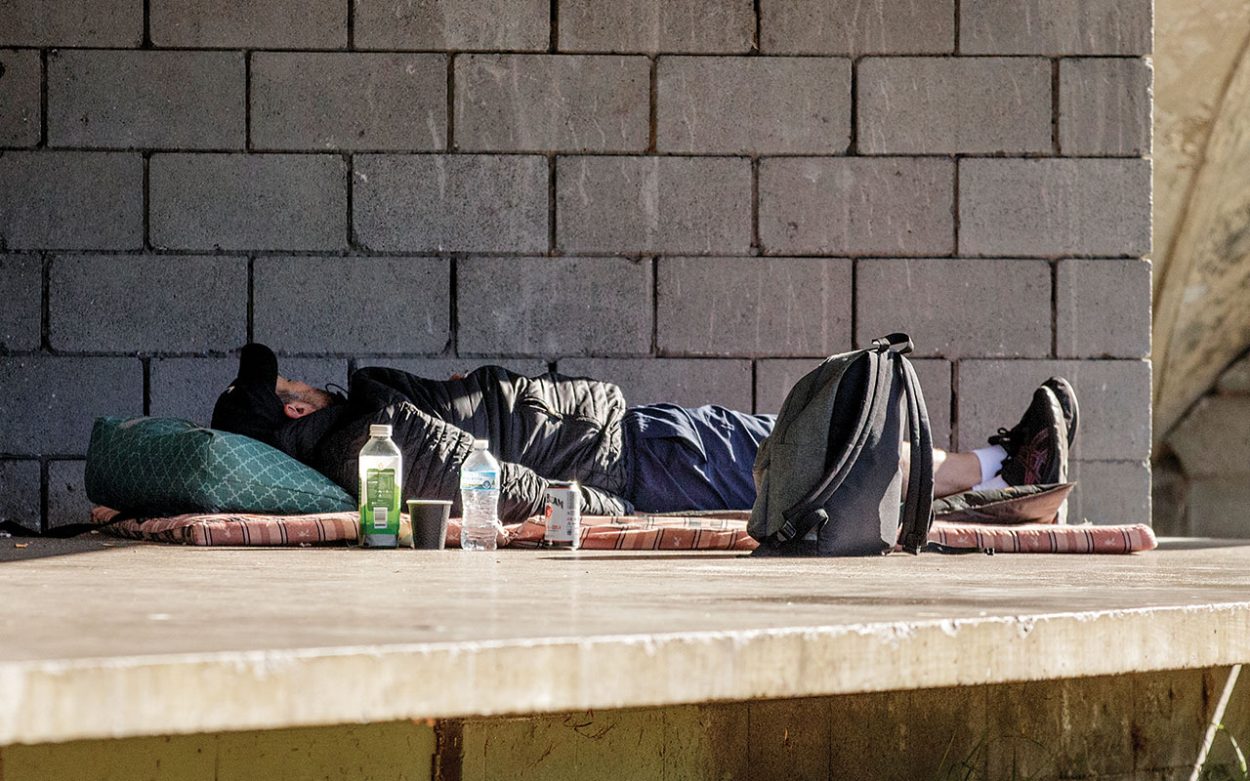
INCREASING numbers of homeless people and spiralling demand for emergency help are fuelling the housing crisis on the Mornington Peninsula.
Rising costs and a shortage of affordable housing has led to six peninsula towns being categorised as “suffering housing stress higher than the Australian average”. With 35 per cent of residents facing rental stress and 16 per cent of homeless residents sleeping rough every night, Mornington Peninsula Shire is ranked as the fourth worst local government area in the state. Statistically, things have worsened since the shire declared a “housing crisis” in 2021.
The mayor Cr Simon Brooks said it was “alarming to know that over the past year, on any given night, there were 600 people experiencing homelessness on the peninsula”. In July 2021, Mornington Community Support Centre helped 21 clients, a number that jumped to 44 in July this year. At the same time, emergency relief assessments at Mornington went from 274 to 413 last month.
Western Port Community Support had 199 emergency relief assessments in July 2019, 473 last year and 608 in July this year. In July 2019, 38 clients were supported, 43 in 2023 and 58 this year. In addition to supporting those who are acutely homeless the program has a strong focus on prevention and providing critical interventions to stabilise an individual’s or family’s housing situation, aiming to avoid these people from falling into homelessness,” Western Port Community Support’s executive officer Georgia Hourn said.
“The demand for our program has increased in line with the current housing crisis and we are seeing new clients every day presenting for critical housing support. “Homelessness in our region is often very hidden and spread out across our extensive Western Port coastline. We are witnessing a lot more individuals and families couch surfing, living in overcrowded dwellings, living in cars, and rough sleeping. “In particular is the concerning rise in the number of elderly females experiencing homelessness or in serious housing stress and facing eviction.”
Southern Peninsula Community Support CEO Jeremy Maxwell said the centre had seen 771 “unique clients” in 2023-2024, a 33 per cent increase from the previous year.
While seeing its “important role” as including planning scheme support, supporting services and land release, the shire says state and federal governments are primary responsible for social and affordable housing. The shire says it has “significant concerns that our local context will not be considered” and it may miss out on its “fair share” on money from the two other tiers of government.
Representatives from the Committee for Frankston and Mornington Peninsula and Mornington Peninsula Shire Council went to Canberra in late May to lobby federal politicians about homelessness, housing and the use of land near the Port of Hastings (Lobbying for peninsula in Canberra, The News 2/7/24). The shire has also allocated $70,000 to adopt Functional Zero (FZ), a program that aims to identify and connect with every homeless person on the peninsula.
This week is national Homelessness Week (5 to 11 August) and the shire, community support centres in Rosebud, Hastings and Mornington, the youth homelessness organisation Fusion and The Salvation Army have organised an event at Mornington Park this Friday (9 August). The 6pm to 8.30pm event will include a Walk Without Home “interactive experience”, live music, food trucks and close with a Reflection Ceremony.
Mornington Community Support Centre CEO Ben Smith said that the peninsula’s three support centres, Fusion and The Salvation Army were “all doing the best we can to keep the safety net in place for people doing it tough”. “But that safety net is held together by volunteers and donated food, and just one crisis accommodation facility serving the entire peninsula. We need action from all levels of government to ensure we can meet the growing need, and we need action now.”
The crisis support centre The Ranch, in Mornington, was the subject of a documentary shown at Rosebud Cinemas on Monday. The production by the Mornington support centre and Peninsula Films records the difficulties faced by homeless people who have found some temporary relief at The Ranch, a former motel that will at some stage be demolished, leaving the peninsula without any crisis accommodation centre.
Another short term option is camping on 12 sites reserved by the shire for homeless people on the foreshore at Rosebud. Brooks said the camping sites were occupied most nights but were “a short-term solution only, while longer-term options are explored”. “The lack of affordable housing on the peninsula has reached a critical point, particularly for young people,” Fusion team leader Gemma Bell said. “Without somewhere safe, secure and affordable to live it is impossible to find a job or dream of a future, and there just aren’t enough options for young people to make ends meet.”




